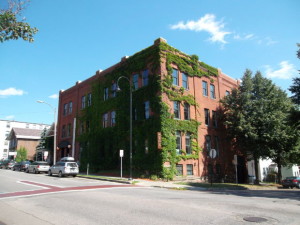The latest draft of Burlington’s Housing Action Plan, out last week, deserves a few pointed comments. Aside from two additional proposals (bringing the total to 20), there aren’t many substantial changes, but we noticed a few subtle revisions worth noting.
We all know there are no simple remedies for the housing affordability problem, which the action plan declares to be one of the city’s “most significant challenges.” The two new proposals certainly don’t qualify as silver bullets.
One is for Burlington to take the lead in “regional housing initiatives that strengthen transportation corridors.” Clustering new housing near transportation nodes or corridors makes sense and is being pushed in various metro areas around the country. Certainly, if any municipality around here is going to take the lead in this sort of planning, it might as well be Burlington. On the other hand, in the absence of county government or targeted oversight by the legislature, regional planning in these parts is largely a hand-waving exercise.
The other new proposal, to improve home energy efficiency of rental units, could help diminish some of the prevailing housing burden (58 percent of Burlingtonians are renters, and they pay an average of 44 percent of their income on housing, the report states), but not the lion’s share of that burden –monthly rents.
The new draft adds language in its first paragraph acknowledging the need to “continue supporting efforts to protect tenants’ rights, prevent displacement, and ensure fair housing” — a commendable revision. Granted, the action plan doesn’t have much to say about fair housing, but that’s OK, because Burlington will be giving fair housing a detailed look in its forthcoming “assessment” mandated by HUD’s affirmatively furthering fair housing regulation.
As before, the plan recommends considering revisions in the inclusionary zoning ordinance. The new draft adds “triggering thresholds” to the provisions to be rethought, but in any case, all the serious rethinking of this ordinance is being deferred to a consultancy-to-be-named later. Ultimately, we’ll be looking for recommendations on how the ordinance can produce affordable units at a higher rate than it has in the past (fewer than 250 units in 25 years).
Another pending review (or moving target) focuses on Plan BTV South End, which we mentioned in a previous post and is in a comment phase now.
Here’s one area where the action plan draft comes up short: addressing the housing burdens of middle-class people, including the proverbial young professionals. The plan’s introduction lays out the affordability “challenge” for “residents across much of the income spectrum, and in particular those who make enough money that they are not eligible for subsidized housing, but struggle to compete in an unhealthy housing market where demand has far outstripped available supply.” What does the plan offer for these residents in particular? Not much, beyond vague references to “workforce housing” and the familiar argument that increasing the housing supply (in part by pulling students out of the rental market and into new residence halls) will ameliorate upward pressure on rents.
